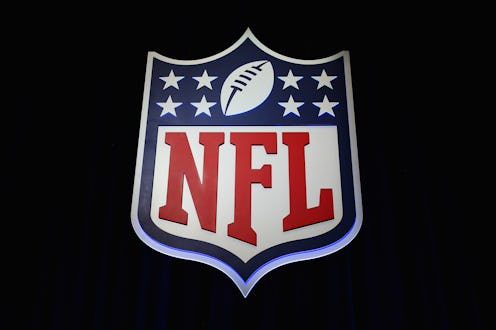
With the Super Bowl just around the corner, we're in for some intense football mania. While people gear up to cheer for their favorite teams, the timing of the games might be of interest to some as the ongoing national reckoning with sexual violence takes place. Some might be wondering what the NFL's sexual assault policy is. Though the league has guidelines in place, it has been criticized by some for not going far enough.
So what is the NFL's policy on sexual assault? It's mentioned in its personal conduct policy shared by CBS News. Here's what the NFL says:
An individual is subject to discipline under the policy if the person is determined to be guilty of a criminal charge or if the NFL investigation demonstrates the person engaged in conduct prohibited by the policy. Depending on the nature of the violation and the person’s record, discipline may be a fine, suspension, community service, or a combination of the three.
In addition to being fined, getting suspended, or having to carry out community service, the NFL policy also points to heavier punishments in the case of an athlete's repeated failure to follow its regulations. Heavier crimes that involve physically hurting someone can lead to lengthier and unpaid suspension.
The policy guide states, "Violations involving assault, battery, domestic violence or sexual assault will result in a baseline six-game suspension without pay, with more if aggravating factors are present, such as the use of a weapon or a crime against a child. A second offense will result in banishment from the NFL."
NFL's personal conduct policy has guidelines on what a member of the sports organization, including players, is prohibited from doing. From threatening to physically harm someone, stalking, using harassment to intimidate to illegally possessing guns or drugs, the NFL policy guide on personal conduct is a comprehensive document that forbids NFL players from engaging in unethical and harmful behavior.
So, what does the NFL do in the case if a player is suspected of violating the organization's personal policy conduct? It begins with an investigation in which the league is made aware of the possible violation. The NFL Special Counsel for Investigations and Conduct then carries out an investigation and forms a primary disciplinary response in the event that the player is found guilty of violating the guidelines.
If law enforcement is involved, the NFL states that it "will avoid any interference and may await the outcome of the law enforcement proceedings before completing the NFL investigation."
For the league's investigation, the NFL conduct committee gets involved. This committee comprises nine of the NFL owners who review the conduct policy on a yearly basis and suggest changes, if need be. In the case that the NFL committee finds a violation of the personal policy conduct, the player may be forced to go on a paid or unpaid leave, depending on the severity and repetition of the violation. Ultimately, the NFL investigation along with the law enforcement investigation concludes and there is a final disciplinary decision.
In spite of its guide, the NFL has been criticized for introducing its policy as not a move to rectify sexual violence within its ranks but as a public relations tactic to tackle public criticism. As the #MeToo movement goes on, there is a strong possibility that the conversation on sexual violence will turn to the NFL, given its own history with players like former Baltimore Ravens play Ray Rice who was arrested and indicted for assault. Michael Kimmel, renowned sociologist and professor at Stony Brook University, says that the reckoning will happen.
"They’re coming," Kimmel told TIME magazine in December, "One big difference in 2017 is that women are being believed. Women are not on trial. Their credibility is not the issue. Men’s behavior is the issue. That is the biggest change right now."